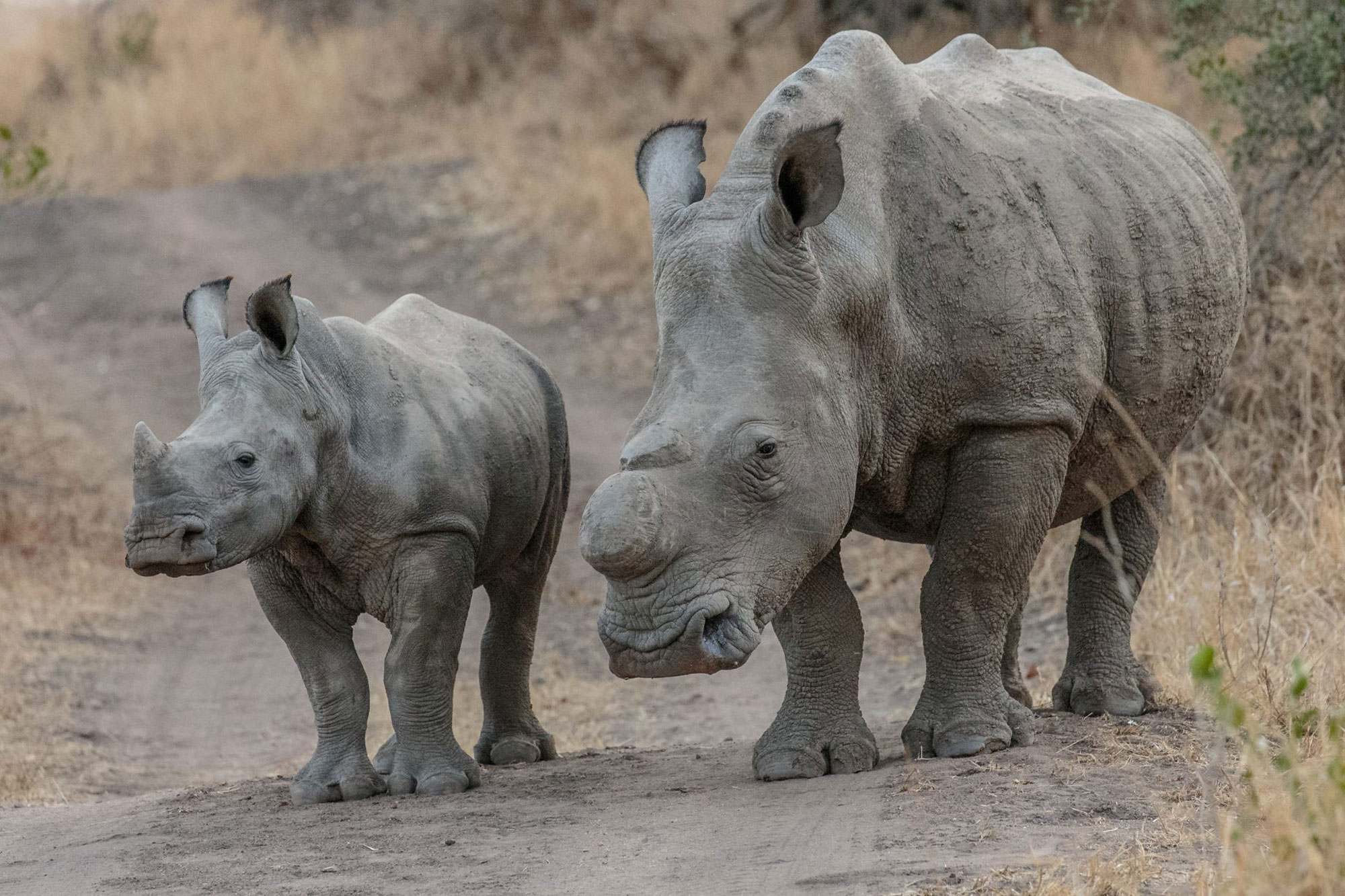New statistics for rhino conservation from the South African environment ministry point to significant progress in combating rhino poaching. However, Professor Keith Somerville, a conservation expert at Kent, said, “There is still a mountain to climb in overcoming corruption and institutional failings.
“Those concerned with rhino conservation and horrified by the continuing toll of black and white rhinos in Africa breathed a huge sigh of relief on the 13th February, 2019, when South Africa’s Environmental Affairs Minister, Ms Nomvula Mokonyane, reported ‘significant progress’ in implementing the national strategy to combat rhino poaching.
“She said that from 1 January to 31 December, 2018, there was a 25% decrease in the number of rhinos poached, with the recorded deaths down to 769 from 1028 in 2017. The announcement drew praise from the NGO Save the Rhino, who tweeted that this was ‘great news from South Africa with fewer rhinos poached in 2018 than before – and the first time this figure has been below 1,000 since 2012!’
“This is an important step forward, even though the level of poaching remains a very serious threat, with the 2018 level of poaching in South Africa alone amounting to nearly 3% of the entire black and white rhino population in Africa (which numbers between 24,724 and 26,532 animals).
Annual poaching figures (from Save the Rhino and Ministry of Environmental Affairs)
| 2007 | 2008 | 2009 | 2010 | 2011 | 2012 | 2013 | 2014 | 2015 | 2016 | 2017 | 2018 |
| 13 | 83 | 122 | 333 | 448 | 668 | 1004 | 1215 | 1175 | 1054 | 1028 | 769 |
“It would be wrong not to praise the efforts that have led to the decline but there is still a steep mountain to climb both in continuing to bring the numbers down and in prosecuting and jailing those who control and benefit most from poaching, the so-called rhino horn kingpins. There is clear evidence of incompetence and corruption within the judiciary, some sections of the police, and even national park rangers (with two of the latter arrested in Kruger National park last month on charges of rhino poaching).
“This graft and dysfunctionality casts a dark cloud over what is the welcome development in reducing the numbers of rhino poached. There is clearly still a mountain to climb in overcoming the corruption and institutional failings that are preventing the successful prosecution of those who run rhino horn syndicates.”
 Professor Keith Somerville is a member of DICE at the University of Kent. His book on human-lion coexistence and conflict is being published by Routledge in 2019. His study of the media coverage of the Cecil the Lion affair is available as a Kindle book on Amazon.
Professor Keith Somerville is a member of DICE at the University of Kent. His book on human-lion coexistence and conflict is being published by Routledge in 2019. His study of the media coverage of the Cecil the Lion affair is available as a Kindle book on Amazon.

